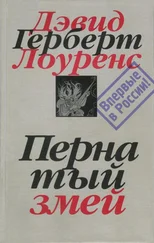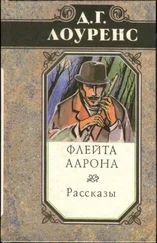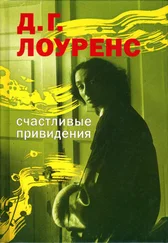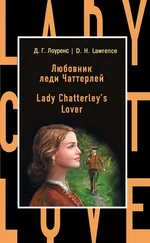Дэвид Лоуренс - Sons and Lovers
Здесь есть возможность читать онлайн «Дэвид Лоуренс - Sons and Lovers» весь текст электронной книги совершенно бесплатно (целиком полную версию без сокращений). В некоторых случаях можно слушать аудио, скачать через торрент в формате fb2 и присутствует краткое содержание. Жанр: Старинная литература, на английском языке. Описание произведения, (предисловие) а так же отзывы посетителей доступны на портале библиотеки ЛибКат.
- Название:Sons and Lovers
- Автор:
- Жанр:
- Год:неизвестен
- ISBN:нет данных
- Рейтинг книги:3 / 5. Голосов: 1
-
Избранное:Добавить в избранное
- Отзывы:
-
Ваша оценка:
- 60
- 1
- 2
- 3
- 4
- 5
Sons and Lovers: краткое содержание, описание и аннотация
Предлагаем к чтению аннотацию, описание, краткое содержание или предисловие (зависит от того, что написал сам автор книги «Sons and Lovers»). Если вы не нашли необходимую информацию о книге — напишите в комментариях, мы постараемся отыскать её.
Sons and Lovers — читать онлайн бесплатно полную книгу (весь текст) целиком
Ниже представлен текст книги, разбитый по страницам. Система сохранения места последней прочитанной страницы, позволяет с удобством читать онлайн бесплатно книгу «Sons and Lovers», без необходимости каждый раз заново искать на чём Вы остановились. Поставьте закладку, и сможете в любой момент перейти на страницу, на которой закончили чтение.
Интервал:
Закладка:
“Come along a bit,” replied Limb, “an’ I’ll show you.”
The man and the stallion went forward. It danced sideways, shaking its white fetlocks and looking frightened, as it felt itself in the brook.
“No hanky-pankyin’,” said the man affectionately to the beast.
It went up the bank in little leaps, then splashed finely through the second brook. Clara, walking with a kind of sulky abandon, watched it half-fascinated, half-contemptuous. Limb stopped and pointed to the fence under some willows.
“There, you see where they got through,” he said. “My man’s druv ek’em back three times.”
“Yes,” answered Miriam, colouring as if she were at fault.
“Are you comin’ in?” asked the man.
“No, thanks; but we should like to go by the pond.”
“Well, just as you’ve a mind,” he said.
The horse gave little whinneys of pleasure at being so near home.
“He is glad to be back,” said Clara, who was interested in the creature.
“Yes—’e’s been a tidy step to-day.”
They went through the gate, and saw approaching them from the big farm-house a smallish, dark, excitable-looking woman of about thirty-five. Her hair was touched with grey, her dark eyes looked wild. She walked with her hands behind her back. Her brother went forward. As it saw her, the big bay stallion whinneyed again. She came up excitedly.
“Are you home again, my boy!” she said tenderly to the horse, not to the man. The great beast shifted round to her, ducking his head. She smuggled into his mouth the wrinkled yellow apple she had been hiding behind her back, then she kissed him near the eyes. He gave a big sigh of pleasure. She held his head in her arms against her breast.
“Isn’t he splendid!” said Miriam to her.
Miss Limb looked up. Her dark eyes glanced straight at Paul.
“Oh, good-evening, Miss Leivers,” she said. “It’s ages since you’ve been down.”
Miriam introduced her friends.
“Your horse is a fine fellow!” said Clara.
“Isn’t he!” Again she kissed him. “As loving as any man!”
“More loving than most men, I should think,” replied Clara.
“He’s a nice boy!” cried the woman, again embracing the horse.
Clara, fascinated by the big beast, went up to stroke his neck.
“He’s quite gentle,” said Miss Limb. “Don’t you think big fellows are?”
“He’s a beauty!” replied Clara.
She wanted to look in his eyes. She wanted him to look at her. “It’s a pity he can’t talk,” she said.
“Oh, but he can—all but,” replied the other woman.
Then her brother moved on with the horse.
“Are you coming in? Do come in, Mr.—I didn’t catch it.”
“Morel,” said Miriam. “No, we won’t come in, but we should like to go by the mill-pond.”
“Yes—yes, do. Do you fish, Mr. Morel?”
“No,” said Paul.
“Because if you do you might come and fish any time,” said Miss Limb. “We scarcely see a soul from week’s end to week’s end. I should be thankful.”
“What fish are there in the pond?” he asked.
They went through the front garden, over the sluice, and up the steep bank to the pond, which lay in shadow, with its two wooded islets. Paul walked with Miss Limb.
“I shouldn’t mind swimming here,” he said.
“Do,” she replied. “Come when you like. My brother will be awfully pleased to talk with you. He is so quiet, because there is no one to talk to. Do come and swim.”
Clara came up.
“It’s a fine depth,” she said, “and so clear.”
“Yes,” said Miss Limb.
“Do you swim?” said Paul. “Miss Limb was just saying we could come when we liked.”
“Of course there’s the farm-hands,” said Miss Limb.
They talked a few moments, then went on up the wild hill, leaving the lonely, haggard-eyed woman on the bank.
The hillside was all ripe with sunshine. It was wild and tussocky, given over to rabbits. The three walked in silence. Then:
“She makes me feel uncomfortable,” said Paul.
“You mean Miss Limb?” asked Miriam. “Yes.”
“What’s a matter with her? Is she going dotty with being too lonely?”
“Yes,” said Miriam. “It’s not the right sort of life for her. I think it’s cruel to bury her there. I really ought to go and see her more. But—she upsets me.”
“She makes me feel sorry for her—yes, and she bothers me,” he said.
“I suppose,” blurted Clara suddenly, “she wants a man.”
The other two were silent for a few moments.
“But it’s the loneliness sends her cracked,” said Paul.
Clara did not answer, but strode on uphill. She was walking with her hand hanging, her legs swinging as she kicked through the dead thistles and the tussocky grass, her arms hanging loose. Rather than walking, her handsome body seemed to be blundering up the hill. A hot wave went over Paul. He was curious about her. Perhaps life had been cruel to her. He forgot Miriam, who was walking beside him talking to him. She glanced at him, finding he did not answer her. His eyes were fixed ahead on Clara.
“Do you still think she is disagreeable?” she asked.
He did not notice that the question was sudden. It ran with his thoughts.
“Something’s the matter with her,” he said.
“Yes,” answered Miriam.
They found at the top of the hill a hidden wild field, two sides of which were backed by the wood, the other sides by high loose hedges of hawthorn and elder bushes. Between these overgrown bushes were gaps that the cattle might have walked through had there been any cattle now. There the turf was smooth as velveteen, padded and holed by the rabbits. The field itself was coarse, and crowded with tall, big cowslips that had never been cut. Clusters of strong flowers rose everywhere above the coarse tussocks of bent. elIt was like a roadstead crowded with tall, fairy shipping.
“Ah!” cried Miriam, and she looked at Paul, her dark eyes dilating. He smiled. Together they enjoyed the field of flowers. Clara, a little way off, was looking at the cowslips disconsolately. Paul and Miriam stayed close together, talking in subdued tones. He kneeled on one knee, quickly gathering the best blossoms, moving from tuft to tuft restlessly, talking softly all the time. Miriam plucked the flowers lovingly, lingering over them. He always seemed to her too quick and almost scientific. Yet his bunches had a natural beauty more than hers. He loved them, but as if they were his and he had a right to them. She had more reverence for them: they held something she had not.
The flowers were very fresh and sweet. He wanted to drink them. As he gathered them, he ate the little yellow trumpets. Clara was still wandering about disconsolately. Going towards her, he said:
“Why don’t you get some?”
“I don’t believe in it. They look better growing.”
“But you’d like some?”
“They want to be left.”
“I don’t believe they do.”
“I don’t want the corpses of flowers about me,” she said.
“That’s a stiff, artificial notion,” he said. “They don’t die any quicker in water than on their roots. And besides, they look nice in a bowl—they look jolly. And you only call a thing a corpse because it looks corpse-like.”
“Whether it is one or not?” she argued.
“It isn’t one to me. A dead flower isn’t a corpse of a flower.”
Clara now ignored him.
“And even so—what right have you to pull them?” she asked.
“Because I like them, and want them—and there’s plenty of them.”
“And that is sufficient?”
“Yes. Why not? I’m sure they’d smell nice in your room in Nottingham.”
“And I should have the pleasure of watching them die.”
Читать дальшеИнтервал:
Закладка:
Похожие книги на «Sons and Lovers»
Представляем Вашему вниманию похожие книги на «Sons and Lovers» списком для выбора. Мы отобрали схожую по названию и смыслу литературу в надежде предоставить читателям больше вариантов отыскать новые, интересные, ещё непрочитанные произведения.
Обсуждение, отзывы о книге «Sons and Lovers» и просто собственные мнения читателей. Оставьте ваши комментарии, напишите, что Вы думаете о произведении, его смысле или главных героях. Укажите что конкретно понравилось, а что нет, и почему Вы так считаете.









